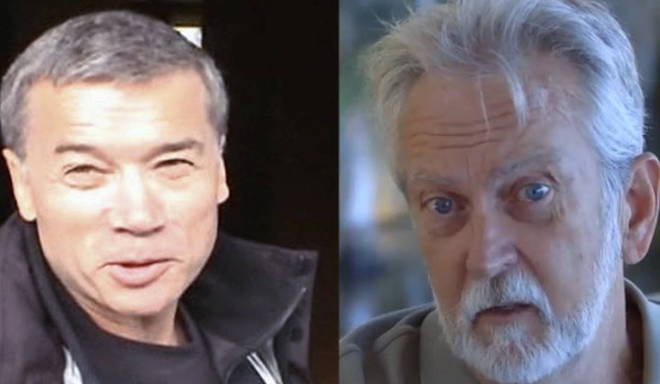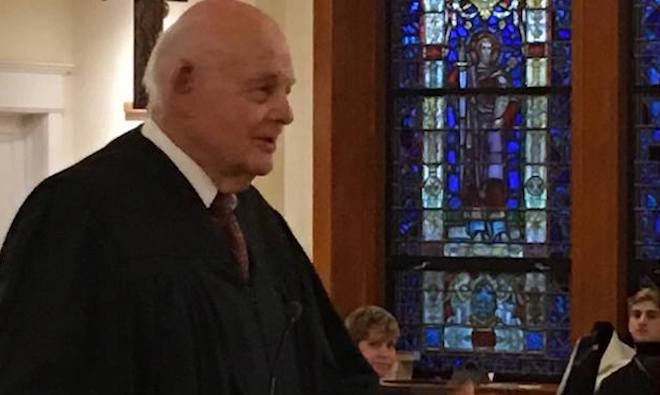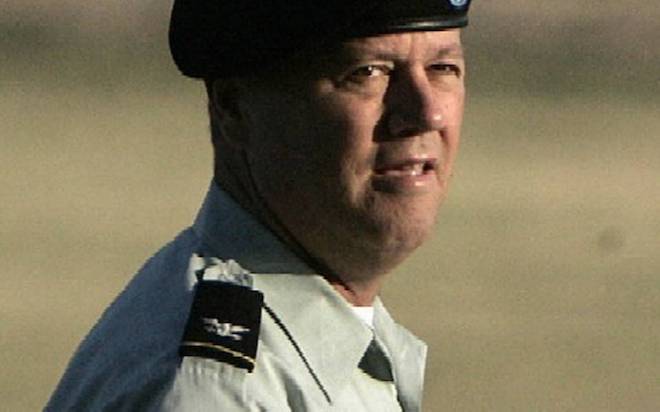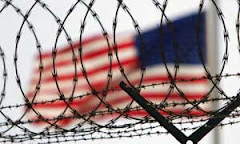In Our Prison on the Sea
By MANSOOR ADAYFI SEPT. 15, 2017
I tried to copy the beautiful painting by Mohammed Ansi, a former
Guantánamo detainee that accompanied this essay by former Guantanamo detainee Mansoor Adayfi in Sunday's New York Times. I am copying a few excerpts from the essay- Click here to read the entire essay and to view the painting- and then I will tell you a story about my own client and the sea.
"After
the plane landed, a bus took us to a ferry, and beneath it we felt the sea. We
were tired, hungry, in pain, and in fear about it all. We were gagged,
blindfolded and shackled. We were dragged from the ferry to our cages. When we
arrived at our cages, we whispered to one another, “There is a sea around.” We
could feel it despite all of the pain, confusion and fear. All we were waiting
for at the beginning was the sea......
....Some of
the camps in Guantánamo were closer to the sea than others. After a few months,
we were moved from Camp X-Ray to Camp Delta, which was closer to the sea, but
we weren’t allowed to see it. The many fences around us were covered with green
tarp to block us from seeing the sea. Once, I tried to tear off the tarp, but
guards saw me and I was sent to isolation. We tried many times to tear off that
tarp. When we did, we saw that there were more walls of fences and tarps, so it
was useless....
...It was
hard not seeing the sea, despite its being only a few hundred feet away from
us. At the recreation area, if we lay on our stomach, we could get glimpses of
the sea through small openings below the tarp. When the guards found out, they
blocked the openings. In some cells, in some blocks, we could stand on the
windows at the back of our cells to see the sea, but that was risky, because
the guards punished us every time they saw us standing and looking out.
Whenever any of us wanted to look at the sea, we needed to ask one of the other
detainees to watch for the guards and warn us if they came around the block. It
wasn’t long before the administration made higher covers, blocking us from
seeing the sea."
Mr. Al-Ghizzawi had been at Guantanamo more than eight years when this particular meeting took place. We had met probably twenty or more times but this particular day was the first time that we had our meeting at camp Iguana. Like most of the places where we had attorney/client meetings with our clients Camp Iguana had been used as a location where the men had been tortured and it was a place that brought back bad memories for our clients. On this, my first visit to camp Iguana I was astounded by the furniture in the meeting room- big overstuffed chairs, a big overstuffed couch and a coffee table- not the usual decor for the meeting spaces.
I never used a translator with Mr. Al-Ghizzawi because he spoke engish- but one of the translators was on the bus with me and as we waited to go into the camp he asked me if I had been to Camp Iguana before. I told him "no." He then told me that if my client asks to use the washroom tell him that if he looks around the corner on the stairs to the left he can see the ocean. The translator told me that the men liked it when they could see the ocean as views of the ocean were forbidden. Sigh.
During the meeting Mr. Al-Ghizzawi asked to use the washroom and before I went to get the guard I told him what the translator had told me about seeing the ocean. He made no comment. When he came back I asked him if he was able to see the ocean and he looked at me and said "I don't care about seeing the ocean I want to see my little girl."
It still makes me incredibly sad to think about that day. Mr. Al-Ghizzawi's daughter was only a few months old when he was kidnapped and sold to my country for the bounty that we were offering for Arabs. He had not seen or spoken to his wife or daughter all of those years. As I sat there I felt foolish and small for suggesting that he might enjoy seeing the ocean but more than that I was angry that this was what we had done- we had locked up innocent men and the best thing that could happen to them was to catch a glimpse of the sea. Mr. Al-Ghizzawi just wanted to see his daughter and I just wanted my country back. Or what I thought was my country.







